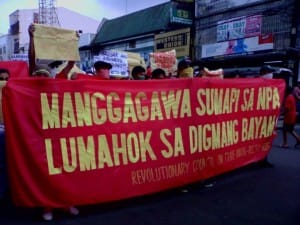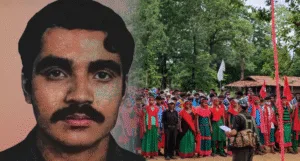We, the National Democratic Front of the Philippines, mourn the passing away of Rep. Jose V. Yap and convey our deep condolences to his dear widow Zeny, his children and grandchildren.
Mang Apeng as he was fondly called by colleagues and friends was a long-time ally of the national democratic movement. It is to his great credit that he worked consistently for national independence, democracy and social justice even as he served in the reactionary government in various capacities as mayor, governor, congressman, and cabinet member.
The national democratic movement had a long-running friendly relationship with Mang Apeng that dates back to the 1960s. The revolutionary movement established contact with him through his relatives in the revolutionary movement in Tarlac.
In the 1960s he distinguished himself as one of the Magnificent Seven, a group of patriotic members of Congress who opposed the presence of the US military bases in the country and the US war of aggression in Vietnam.
He was a staunch ally of the revolutionary movement in the struggle against the US-Marcos dictatorship. He was arrested when Marcos declared Martial Law in 1972.
After the fall of Marcos, Mang Apeng was sent by Cory Aquino as special emissary to The Netherlands to explore the possibility of peace negotiations between the Government of the Republic of the Philippines (GRP) and the National Democratic Front of the Philippines (NDFP). The exploratory talks would result in the signing of the landmark agreement The Hague Joint Declaration of 1992. This framework agreement would serve as the basis for future agreements between the GRP and the NDFP.
Mang Apeng even as he was on the other side played a very positive role in advancing the GRP-NDFP peace negotiations. On a number of occasions, he would openly show his frustration at the intransigence and unreasonableness of his colleagues in the GRP negotiating panel. He played a key role in the forging of ten major agreements in the GRP-NDFP peace negotiations during the years from 1992 to 1998. He was fully convinced that for the peace negotiations to succeed it was necessary to address the roots of the armed conflict by implementing basic social, economic and political reforms.
We honor the memory of Mang Apeng, a friend and ally in the struggle of the Filipino people for national independence, democracy and social justice. We acknowledge his special contributions to the peace negotiations in the forging of agreements for the benefit of the people. His legacy of patriotism and service to the people will continue to inspire us and others who are committed to build an independent, democratic, peaceful and prosperous Philippines.





